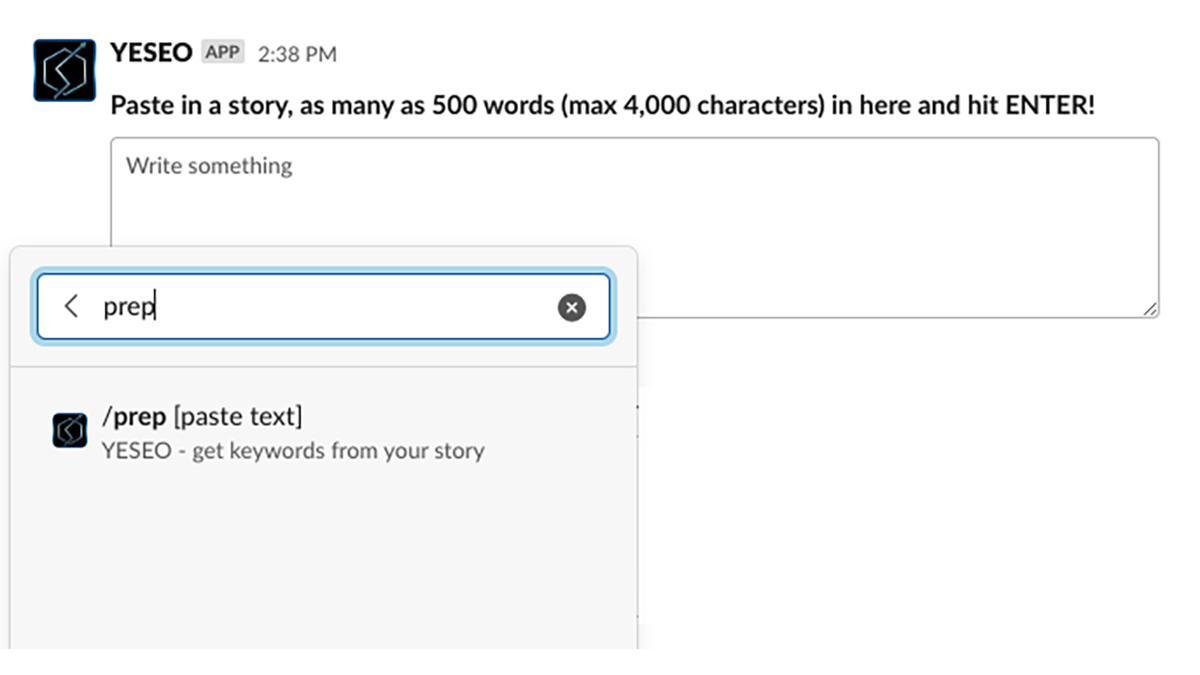What Happens When You Take Writing Away From Writers?
A newspaper editor removed writing from reporters' jobs. The backlash reveals a deeper question about AI in knowledge work.
"The goal of YESEO is to reduce the time to come up with that relevant headline, the right keywords to use and give you the right information at the right time to help you get your work seen and read."

A conversation with an editor about an unranked Google story sparked the idea for Ryan Restivo's RJI Fellowship project. The inability of their story to secure a place on Google's first page led to the birth of YESEO, a slack based SEO tool for newsrooms, designed to provide journalists with the data and knowledge they need to achieve better Google rankings for their stories.
Restivo, backed by the Reynolds Journalism Institute, has been instrumental in creating tools for journalists. With the birth of YESEO, he brought an innovative SEO tool to newsrooms worldwide, designed to improve the visibility of their stories on Google.
"The goal of YESEO is to reduce the time to come up with that relevant headline, the right keywords to use and give you the right information at the right time to help you get your work seen and read," he said.
Today, YESEO is a go-to SEO tool for over 160 newsrooms and workspaces, and growing.
What sets YESEO apart from other SEO tools on the market is many factors. It is free for anyone to use, integrates into your newsroom slack space and it even utilizes Natural Language Processing (NLP) and Generative AI. Restivo believes in the power of the headline, and added, "we know that the headline is the most impactful thing you as a journalist have power over to make sure your work is read."

YESEO offers real-time insights and acts as a guide for journalists to improve their SEO skills. It takes advantage of Generative AI by suggesting alternative headlines for each story entered. Restivo describes the process: "The YESEO app uses Generative AI to help newsrooms produce headline ideas and makes it as easy as hitting a 'Suggest Headlines' button. It generates 5 headline ideas that a newsroom can choose to implement, or tweak them to their specific style."
Another key feature that separates YESEO from the pack is its seamless integration. Restivo notes, "YESEO is free to install. Free to add to your Slack and it doesn't matter what CMS you are using since all of the data is entered via Slack. No integrations, no problems."

Privacy is a significant part of YESEO's ethos, too. "We want to earn your trust, so we treat privacy as one of the most important pillars of what we do," Restivo added. The app learns from the content it processes, and not from any other external data, which protects user privacy.
YESEO already boasts success stories where it dramatically improved a newsroom's SEO performance. One such story involves Northern Illinois University's NPR station. "They used the YESEO app and when they acted on the insights they received on a story, they saw their highest trafficked story in over a year," Restivo shared.

Looking towards the future, Restivo has plans for many improvements based on user feedback. While the tool is free thanks to support from RJI, it is possible a premium version will come in the future, but Restivo believes that can only be possible if it can build upon the core features.
When asked for his advice for newsrooms that are just starting to navigate the world of SEO, Restivo has a simple message: think about the user.

"For as much hype as there is about AI, we in the news are in the people business. People are the ones who need access to our information to act on and make better decisions. So think about the person you want to come see your story and how they might think about your story. Then focus on how to best describe your work to them and you will be on a path to getting your stories read by a wider audience."
Tools like YESEO are not magic bullets, but they can significantly streamline the SEO process, enabling journalists to focus on creating engaging, high-quality content for their readers.